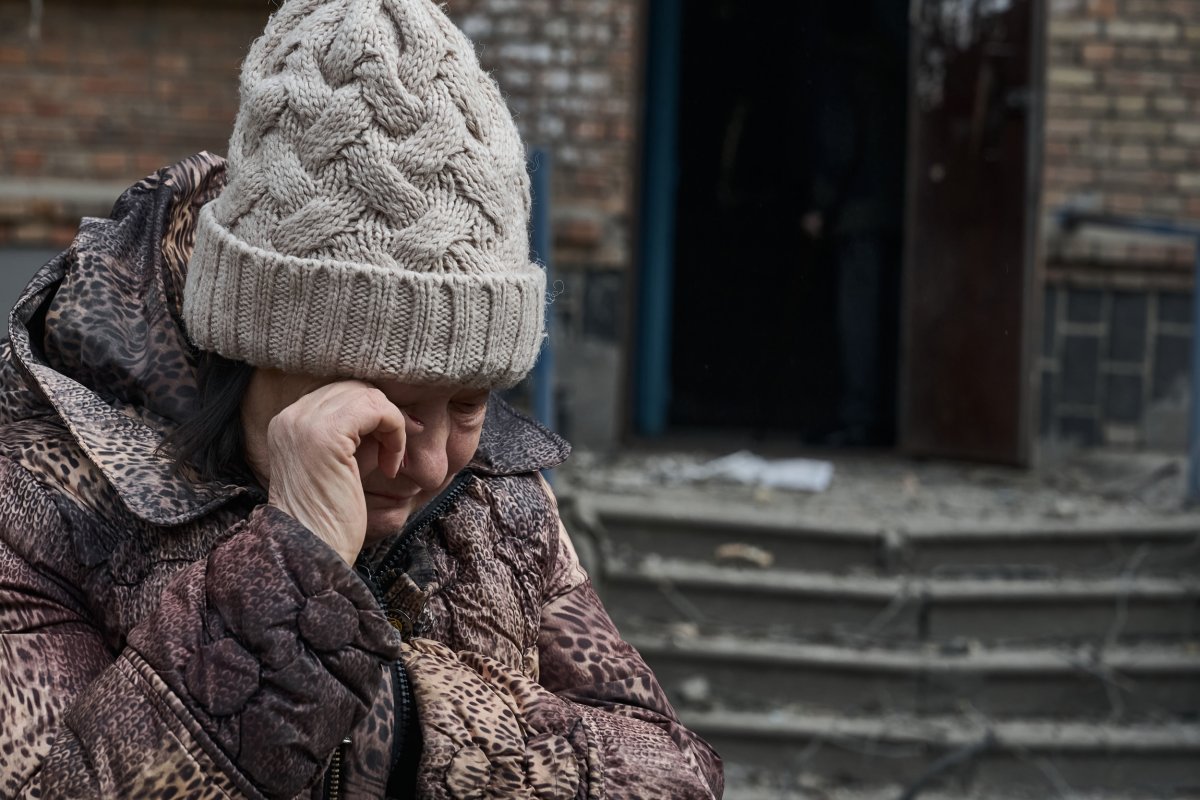Nancy Brinker and Philip Breedlove
As tensions escalate and democracy faces a defining test in Ukraine, it is imperative for the United States to stand firm in its commitment to support this besieged nation. Russian President Vladimir Putin's increasingly hostile aggression, coupled with Ukraine's relentless pursuit of freedom and democracy, demands an unwavering response from the international community, and particularly from the U.S.
Having held roles as a former U.S. ambassador in eastern Europe and a NATO supreme allied commander, we have witnessed firsthand the power of international unity and support in the face of threats from abroad. It is strongly in America's interest that the U.S. House of Representatives follows the Senate's lead in illustrating strong, bipartisan support for Ukraine in the face of Putin's savage aggression and tyranny.
Ukraine stands at a crossroads, fighting not only for its sovereignty but also for the fundamental principles of democracy and human rights. The Ukrainian people have bravely stood up against corruption and oppression, demanding a future where freedom and justice prevail. It is our moral obligation to stand with them in their quest for a better tomorrow.

A resident of the house near the epicenter of the explosion is crying out of fear on March 25, in Kyiv, Ukraine. A hypersonic missile hit the Kyiv State Academy of Decorative and Applied Arts.
Sending aid to Ukraine is not merely an act of charity; it is an economic investment here at home. Funds that lawmakers approve to arm Ukraine are being used stateside to build new weapons or to replace weapons sent to Kyiv from U.S. stockpiles. In fact, of the $68 billion in military and related assistance Congress has approved since Russia invaded Ukraine, almost 90 percent is going to Americans. The American Enterprise Institute has identified 117 production lines in at least 31 states and 71 cities where American workers are producing major weapons systems for Ukraine.
Furthermore, providing aid to Ukraine sends a powerful message to the world that the United States stands firmly behind its allies and will not tolerate threats to democracy and freedom. In a time when authoritarianism is on the rise, it is essential for the United States to demonstrate its unwavering commitment to defending human rights, democratic values and the rules-based international order that has benefited America since the end of World War II.
Prior to the current congressional recess, some members of Congress argued that sending aid to Ukraine is costly and unnecessary, but the cost of inaction far outweighs the cost of providing assistance. Failure to support Ukraine in its time of need would not only betray our values but also embolden Russia and other rogue aggressors to further undermine global stability and security in the Middle East, the Indo-Pacific, and other theaters. Surely, if we adopt the misguided notion that retreating from our obligations is in America's short-term interest, we will find the long-term consequences to be devastating, in terms of U.S. tax dollars resources and personnel.
Moreover, supporting Ukraine is not just about geopolitics; it is about standing up for what is right and just. It is about supporting the aspirations of millions of people who yearn for a future free from oppression and fear. As Americans, we must never forget the sacrifices made by those who have fought and died for the cause of freedom. Putin's acts of aggression and fundamental disregard of established international law must not be met with impunity.
Now is the time for the United States to lead by example and demonstrate its unwavering commitment to defending democracy and human rights around the world. When they return to session in April, the U.S. House of Representatives must act decisively and swiftly to provide aid to Ukraine. Doing so is not only in the best interest of the Ukrainian people but also in the best interest of American workers, our military preparedness and global security.
No comments:
Post a Comment